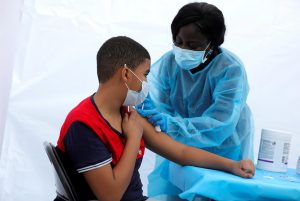
Sooner or later, the world will recover from the blow of Covid-19. But if one thing is clear, it is that another version of Covid, another medical crisis, or a different kind of crisis, is soon to follow. Even before the onset of Covid-19, on August 13, 2018, WHO virologist Dr. Belinda Herring said, “The next pandemic could be around the corner.” More recently, on March 2, 2021, the magazine Infection Control Today published an article titled “Ready for the Next Pandemic? (Spoiler Alert: It’s Coming).” You can guess what it’s about.
For the most part, however, blows don’t come in clusters, but in waves, or one at a time, and for a good reason. Just as children learn through their parents’ discipline, humanity learns through nature’s discipline. Therefore, after nature disciplines us, it usually gives us time to rest, recover, but mainly—to think. Covid-19 is no exception. It is another blow in a series of worsening blows that will continue to worsen the more we ignore the lesson that nature is trying to teach. If previously, blows had a more local tone, Covid is unique in that it is truly global; no one is untouchable, and everyone is afraid.
By handing humanity this global jolt, nature doesn’t only show us who is the boss, but also that we are dependent on each other. And if we are dependent on each other, we have to help each other, take care of each other, and make sure everyone gets what they need. Otherwise, there will be more global blows. It has become a very simple calculation.
When the pancreas becomes dysfunctional, for example, the problem is not endemic to the pancreas; it spreads throughout the body and becomes diabetes. Today, nature is showing us that we are all vital organs. Therefore, for our own sake, we must be considerate and caring about everyone.
Although, as we said, the only way to learn it is through nature’s discipline, we can determine how fast we learn the lesson and progress to a better life for everyone. The more we stall, the tougher will be nature’s lessons.
We needn’t do anything specific; it is more about our attitude toward each other. Just as you don’t teach a mother what to do when she has a baby, but her love tells her what she needs to do and what she still needs to learn, when we develop care for one another, our new attitude will determine our behavior toward each other. Therefore, our focus should be on developing mutual care and consideration in order to avoid the next pandemic or the next big crisis, which is, as we just read, around the corner.
File Caption: Coronavirus disease (COVID-19) vaccination event outside the Bronx Writing Academy school in New York City